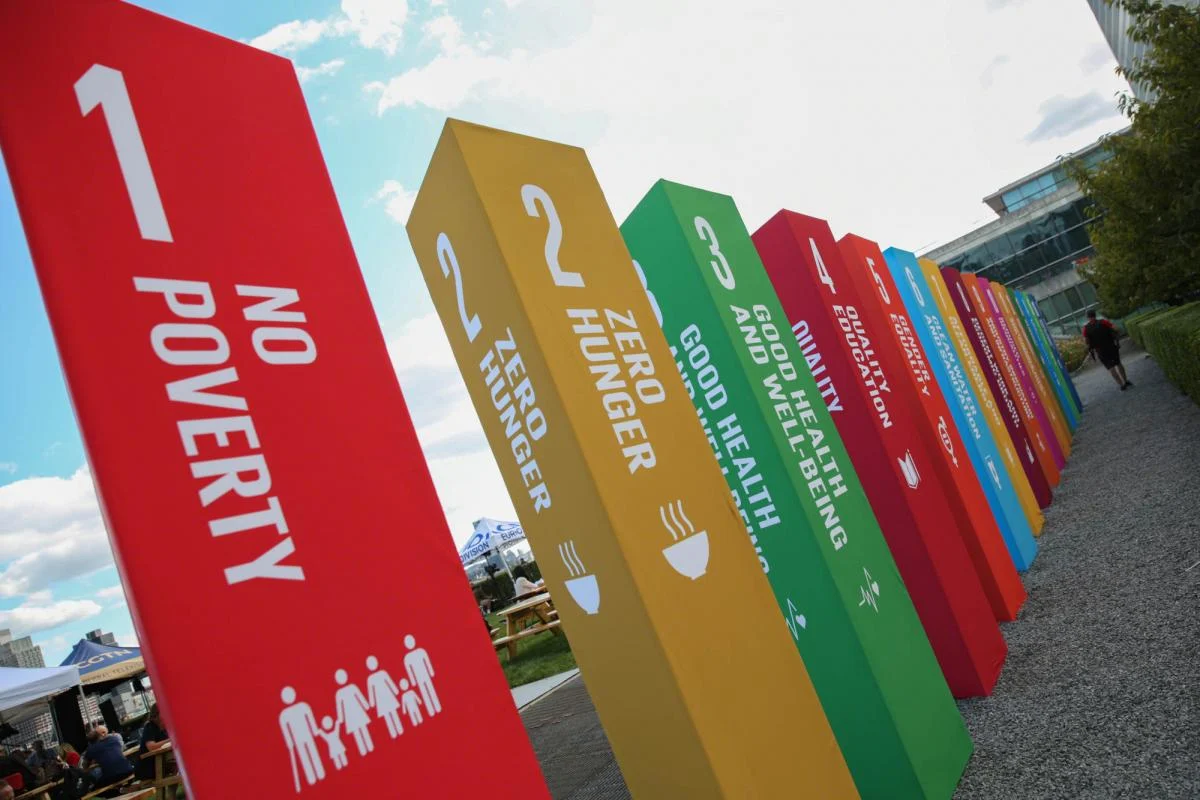By Florence Akano, Humanitarian and Freelance Journalist
The High-level Political Forum on Sustainable Development (HLPF) session in 2022 is the 10th session of the HLPF and is currently taking place at the UN headquarters in New York City.
READ MORE: African Development Bank Group President Akinwumi Adesina visits Morocco
The theme of the 2022 High-Level Political Forum is “Building Better Resilience to Coronavirus Disease (COVID-19) while Accelerating Full Implementation of the 2030 Agenda for Sustainable Development.” The meetings will include a series of high-level ministerial meetings, side events, and exhibitions, in addition to examining progress on a number of specific Sustainable Development Goals (SDGs).
Forty-four countries will conduct voluntary national reviews (VNRs) of their 2030 Agenda for Sustainable Development implementation. The meeting this week follows another High-Level meeting in April called by the President of the United Nations General Assembly in collaboration with UN-Habitat to assess progress in implementing the New Urban Agenda. The meeting was held under the auspices of the Economic and Social Council from Tuesday, 5 July, to Thursday, 7 July, and from Monday, 11 July, to Friday, 15 July 2022. As part of the Council’s high-level segment, it included a three-day ministerial segment from Wednesday, July 13 to Friday, July 15, 2022. The HLPF is the primary UN platform for long-term development. It plays a critical role in the monitoring and evaluation of the 2030 Agenda for Sustainable Development and its Sustainable Development Goals (SDGs). The HLPF, which meets under the auspices of the UN Economic and Social Council, is attended by all UN Member States as well as representatives from civil society organizations (ECOSOC).
READ MORE: African Development Bank ranks first on Global Aid Transparency Index
The HLPF in 2022 will conduct reviews of five SDGs: 4 (quality education), 5 (gender equality), 14 (life below water), 15 (life on land), and 17 (global warming) (partnerships for the Goals). The 2022 High-Level Political Forum on Sustainable Development (HLPF) officially began with a call to action from Collen Kelapile, President of ECOSOC and Permanent Representative of Botswana to the United Nations, to overcome the challenges confronting the global community, outlining many reasons for optimism about sustainable development.
Vera Songwe, United Nations Under-Secretary-General and Executive Secretary of the Economic Commission for Africa (ECA), noted that it is time to get new liquidity into countries, and that the quickest way to do so is through SDRs – both the issuing of new rights and their on-lending. Ms. Songwe also mentioned the ECA’s liquidity and sustainability facility, which will help reduce debt burdens, while emphasizing the importance of market mechanisms rewarding Africa for carbon sequestration so that financing for Africa’s green transformation can be made available. This year, Africa is the focus of the HLPF, with the presentation of Africa’s collective position from the 8th Africa Regional Forum on Sustainable Development, and a record 21 African countries presenting reviews of sustainable development progress to the forum. From July 11 to 15, ministers from the countries presented these Voluntary National Reviews (VNRs), and on July 11, a Regional VNR lab was held to highlight the growing momentum behind both national and local reviews. Amina Mohammed, Deputy Secretary-General of the United Nations, summarized the diverse issues and innovative policies presented in the VNRs for 2022 during the opening session of the HLPF.
The views and opinions expressed in this article are those of the author’s and do not necessarily reflect those of Africanian News.
